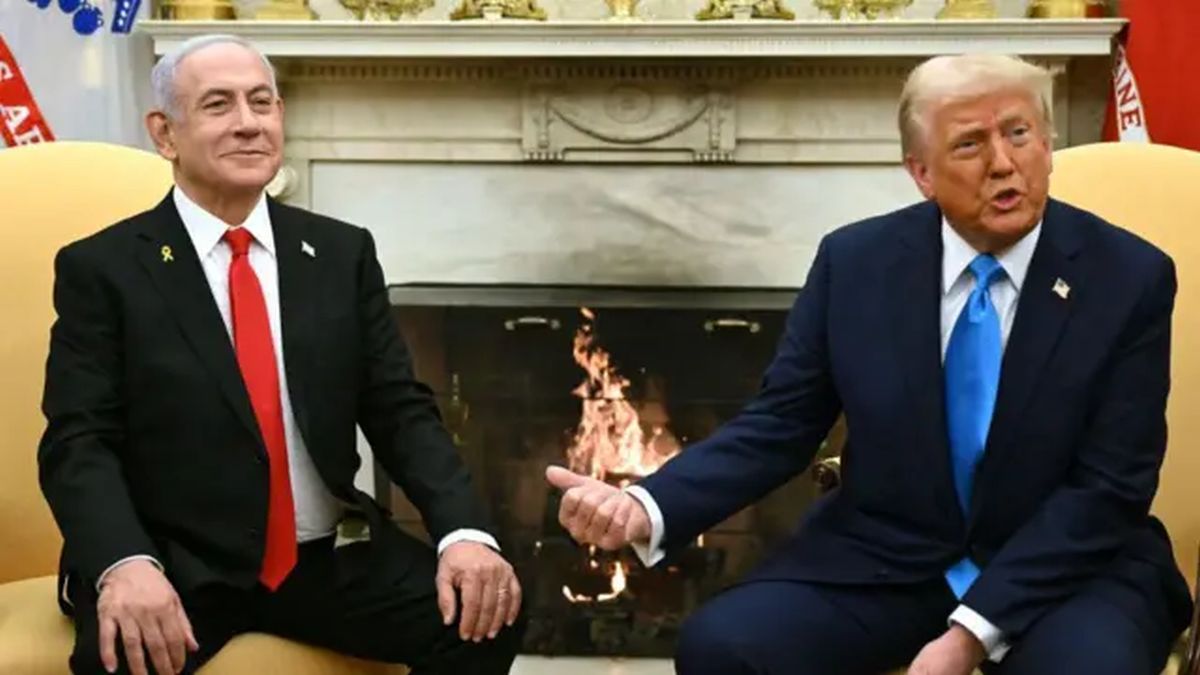In its early stages, the AfD had three chairmen. Then it was two. From now on, a single tip is also possible. Höcke had campaigned for this. Will he want to compete himself in two years?
The AfD chairman Tino Chrupalla wants to lead his party in the next two years on a “liberal and social” course.
In his speech at the opening of the 13th AfD federal party conference, Chrupalla said in Riesa, Saxony, that he saw no contradiction between “free” and “social”. The most important item on the agenda of the three-day event is the election of the new party leadership, which is scheduled for Saturday. Chrupalla, who heads the AfD parliamentary group together with Alice Weidel, is running again.
His challenger for the top office, Norbert Kleinwächter, campaigned on the fringes of the party congress for a return to the liberal-conservative beginnings of the party founded in 2013. The member of the Bundestag said: “The basic program states that we are liberals and conservatives. It doesn’t say we’re social.” The AfD is also a “social party because we take care of the social problems of the citizens, but our ideological approach is conservative-liberal at its core”. He therefore hopes that the new party leadership will also find this out.
The delegates decided that the AfD can be led by just one chairman in the future. A corresponding motion to change the AfD statutes, according to which dual or single leadership should be possible in the future, received the necessary two-thirds majority. The previously valid statutes provided for “two or three” federal spokesmen – that’s the name of the chairmen in the AfD.
Höcke: “Basically, two-pointers are conflict-prone”
The Thuringian state leader and party right winger Björn Höcke, who has never run for the federal executive board himself, had campaigned for the reform. He said: “Basically, two-pointers are prone to conflict.” The party congress still has to decide separately whether one or two chairmen will be elected this Saturday for the next two years. Chrupalla has been leading the AfD alone since the departure of former co-chairman Jörg Meuthen in January.
That is not a directional decision, said Bundestag member Joana Cotar, who is assigned to the camp of moderates in the party. Professionalism also includes “that someone says where to go, someone decides, and if it doesn’t work then that one person can be held responsible for it”.
On Friday evening, the delegates decided not to begin with the new leadership elections until the following day.
Among others, the Saxon state parliamentarian and lawyer Roland Ulbrich was elected to the party’s arbitral tribunal, which decides on the expulsion of members. He stated in his application speech: “Anyone who is constantly afraid of being denigrated by our opponents as right-wing, whatever that means, should look for another party.”
Chrupalla said to the delegates that a new federal board had to be elected that would work together “collegially and constructively, trustingly and considerately”. It is now a matter of “leaving the destructive mood of the past behind us”.
The AfD MEP Nicolaus Fest is applying as a possible co-chair. If the dual leadership is to remain, the party expects Alice Weidel to also run for the post.
Poor results in state elections
One reason for the partly bad mood in the party was the results of the last three state elections. The AfD had lost votes in Saarland, Schleswig-Holstein and North Rhine-Westphalia.
The party had recently made a name for itself with its fundamental criticism of the state anti-corona measures and its rejection of arms deliveries to Ukraine.
The Office for the Protection of the Constitution has classified the AfD as a suspected right-wing extremist. A complaint by the AfD, on the other hand, was decided in the first instance in favor of the protection of the constitution. The AfD has appealed. For the assessment of the protection of the constitution, it is relevant, among other things, how great the influence of the right-wing current is, the most well-known representative of which is the Thuringian state and parliamentary group leader Höcke. At the party congress, he campaigned for a proposal, also supported by Chrupalla, to set up a commission to prepare for a “party structural reform”.
The proposals contained therein would probably place tighter limits on the creative freedom of the new party leadership to be elected than before and strengthen the influence of the state associations. The text says, among other things: “In the event that the federal executive board or members of the federal executive board refuse to implement convention or party congress resolutions, the examination and use of sanctions should be possible.”
“We have to become more powerful,” Höcke justified his suggestion, which was acknowledged by the delegates with some applause. The AfD needs “more effective structures,” said the party’s right-wing extremist, whose state association in Thuringia is observed as a secured right-wing extremist effort.
Source: Stern
David William is a talented author who has made a name for himself in the world of writing. He is a professional author who writes on a wide range of topics, from general interest to opinion news. David is currently working as a writer at 24 hours worlds where he brings his unique perspective and in-depth research to his articles, making them both informative and engaging.




